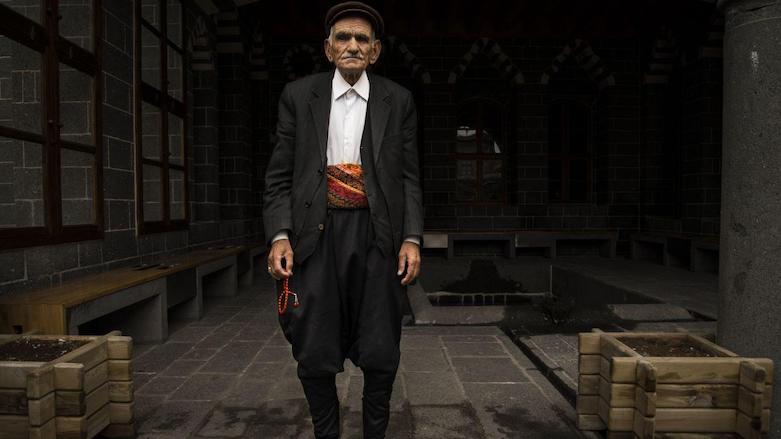Legendary traditional Kurdish storyteller from Diyarbakir passes away at 87

ERBIL (Kurdistan 24) – On Sunday, legendary Kurdish bard Seyîtxanê Boyaxcî from the city of Diyarbakir (Amed) in the Kurdish majority southeast of Turkey passed away at his home at 87 years old due to sickness.
Boyaxcî’s son, Mehmet Şimşek, told Kurdistan 24 that his father became paralyzed due to an infectious disease—unrelated to COVID-19.
He passed away in his home. The funeral took place at the Yeniköy cemetery in the Bağlar district of Diyarbakir.
Boyaxcî, whose real name is Seydo Şimşek, was a traditional dengbêj, an oral storyteller who keeps the painful history of the Kurdish people alive through tales and legends. Famous dengbêjs include singers such as Meryem Xan (1904-1949), Şakiro (1936-1996), Aram Tigran (1934-2009), and Karapete Xaço (1903-2005).
Many dengbêj suffered immensely during the military coup of 1980 in Turkey, especially after the Kurdish language was banned. But in the 1990s, Kurdish was legalized again.
“But the art of the dengbêj was started by women. When a family member fell ill or was killed, and their pain was too much to bear, they started singing,” Boyaxcî told The Guardian in 2011.
Boyaxcî was born in 1933 in Lexerî village of Ergani district in Diyarbakir. He lost his parents at a young age and was raised by his paternal uncle. Boyaxcî never attended school and worked as a shepherd. He moved to Diyarbakir where he worked for 25 years as a shoe polisher, which earned him the nickname “shoe polisher” (Boyaxcî) in Kurdish.
“Like most of Kurdish dengbêj, he had also lived a life of constant difficulties, and had seen pain, longing, love for [the] beloved, and love for the homeland, which he reflected in his work,” Azad Bedran, a well-known Kurdish singer, told Kurdistan 24 at Boyaxcî’s funeral.
“I am truly saddened as I miss the memories with Ape Seyidxan,” Bedran added. “In my first album, I had a duet with him. It was an honor for me.”
Boyaxcî gained fame for his voice in the Kurdish majority region of Turkey and became known as the nightingale of Amed. He also received support from the local pro-Kurdish municipality.
Bedran said he first met the renowned Kurdish musician when he was 10 years old. “We have many memories with him. I would like to pay my respect to his legacy,” he stated.
“I feel like today a piece of our history has left us. More than written scripts, the Kurdish history has been transferred from one generation to another via the Dengbêjan and their songs, and Ape Seyidxan was one of the greatest Dengbêjan.”
Boyaxcî sang for years in the Mala Dengbêjan (House of Dengbêj) in Sur. According to the BBC, it was opened in 2007 by the pro-Kurdish municipality to “help both revive and recognize dengbêj as a specifically Kurdish tradition.”
The house was evacuated during a siege by Turkish government forces on Sur in 2016 during a period of conflict between the armed youth wing of the Kurdistan Workers’ Party (PKK) and the Turkish state after the peace process between both sides broke down in 2015.
By the time the siege was lifted in March 2016, over 200 people had been killed, according to human rights organizations. Eight-hundred buildings were destroyed during the siege, roughly 80 percent of an area that had been continuously inhabited for 7,000 years.
Nonetheless, Mala Dengbêjan was reopened in 2017.
Editing by Karzan Sulaivany
